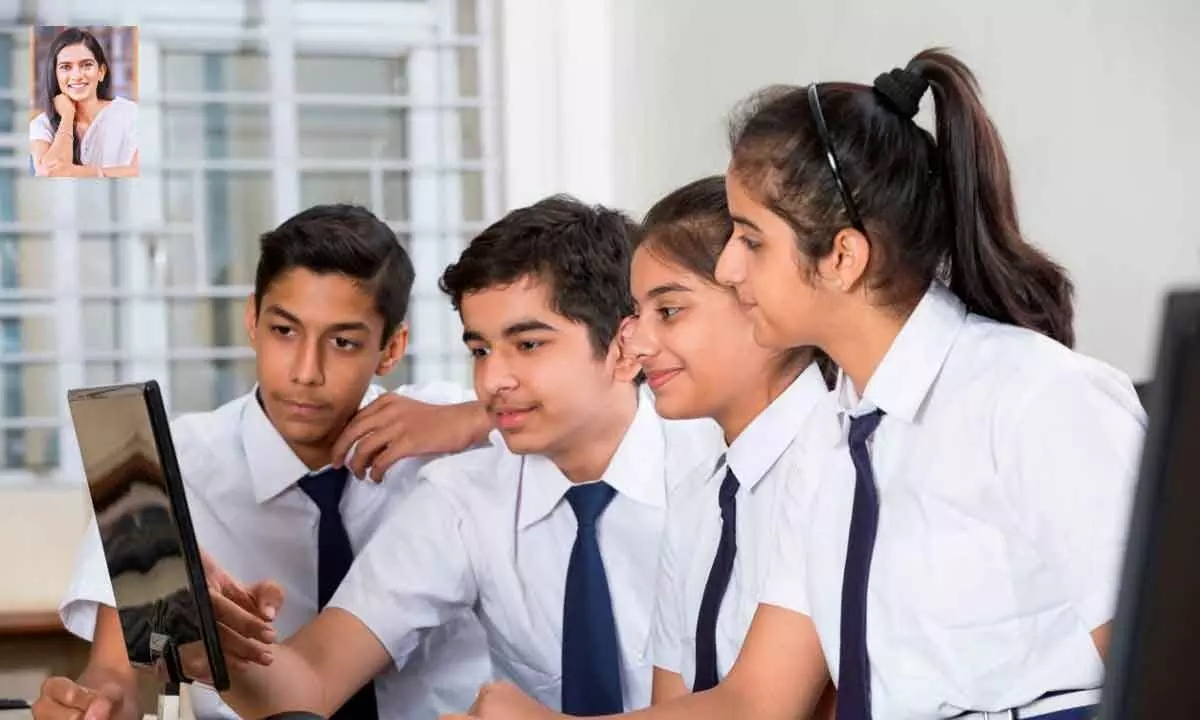A new paradigm in Indian education

The classroom becomes a mini-society where values like respect and responsibility aren’t just taught; they’re practised. Through the Social Contract, students experience firsthand what it means to live in a society that values collective well-being over individual gains. Within these four walls, democracy isn’t just a chapter in a textbook; it comes alive as students engage in meaningful dialogues to decide on rules that govern them. They vote, discuss, and arrive at a consensus, mirroring the democratic processes we see on larger stages.
Imagine walking into a classroom where students are not just following rules, but they’re setting them. The blackboard isn’t filled with lessons from the teacher but with guidelines the students have crafted. This isn’t a futuristic vision—it’s the Social Contract, and it’s reshaping education in India today.
At the forefront of education, I’ve witnessed how classrooms have evolved over the years. We are no longer just about brick and mortar or high-tech gadgets. Today, the essence of education is redefining itself, and the Social Contract is at the heart of this transformation. Students and their teachers create a set of behavioural norms tailored to their specific classroom’s needs. This collaborative exercise ensures that rules are not just imposed but are understood, valued, and willingly followed.
A class of 6th graders in one of our schools set a rule: “If a student interrupts, they will volunteer for a classroom task.” This rule was not mandated by a teacher but decided upon by the students themselves. What happened next? Interruptions were reduced, and students actively participated in maintaining classroom decorum. The beauty of the Social Contract is that it’s not just about rules; it’s about teaching life skills. When children understand that actions have consequences, they’re better prepared for challenges outside the classroom.
While the Social Contract is student-centric, the role of a teacher remains paramount. They guide, facilitate, and ensure that the contract is fair, just, and inclusive. The bond between students and teachers is strengthened as both commit to upholding the contract. It’s a partnership built on mutual respect and understanding.
The classroom becomes a mini-society where values like respect and responsibility aren’t just taught; they’re practised. Through the Social Contract, students experience firsthand what it means to live in a society that values collective well-being over individual gains. Within these four walls, democracy isn’t just a chapter in a textbook; it comes alive as students engage in meaningful dialogues to decide on rules that
govern them. They vote, discuss, and arrive at a consensus, mirroring the democratic processes we see on larger stages.
However, the journey doesn’t stop at creating a Social Contract. It’s a continuous process of reflection, learning, and adaptation. As students progress, so do the rules. The dynamic nature of this system ensures that students are always engaged, always thinking, and always evolving.
Today, as schools adapt to the demands of a Newer India, initiatives like the Social Contract stand out. It’s preparing our children for the world outside, teaching them that every action has consequences and that they have a voice. It’s ensuring that when they step out, they don’t just follow the world, but they’re ready to lead it.
By introducing tools like the Social Contract in classrooms, we are ensuring that our children not only learn but also understand, adapt, and evolve. As they stand on the brink of shaping India’s future, our role is to provide them with the best foundation possible. The Social Contract might just be a piece in the vast puzzle of education, but it’s a significant one. For, in these classrooms, we’re nurturing the architects of tomorrow, ready to lead and create a brighter, better India.
(The author is Founder of Ekya Schools, Provost, CMR University)














